
With new privacy laws and the transition to electronic record keeping, individuals with knowledge and training in healthcare IT are in demand. According to the Bureau of Labor Statistics, the job outlook for medical records and health information technicians is expected to grow by 13% through 2026, faster than average! In the world of healthcare IT, certifications are valuable. Earning a certification means you have knowledge and skills in relevant systems or procedures. Certification is a validation of that skill set. We have highlighted what we feel are the top 10 healthcare IT certifications. We have included a variety of certifications at all different skill levels. We researched job postings on Indeed, Glassdoor, and Monster.com to see what employers were looking for. These healthcare IT certifications are in demand across the country and individuals holding one or more of these will definitely be competitive in the job market. Below are our top 10 healthcare IT certifications.
Featured Programs
10. Healthcare Information Security and Privacy Practitioner (HCISPP)
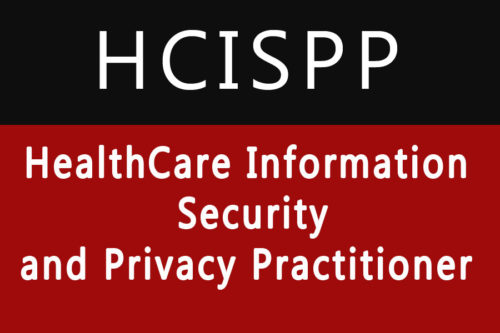
The HealthCare Information Security and Privacy certification offered by (ISC)2 is a healthcare cybersecurity certificate. This certification was introduced in 2013 and is now available at 882 locations in 114 countries. It combines cybersecurity with privacy best practices and techniques to protect patient health information. To be eligible for the HCISPP, candidates should have at least two years of paid work experience in one or more areas in the Common Body of Knowledge. The Common Body of Knowledge include six domain areas including:
- healthcare industry
- regulatory environment
- privacy and security in healthcare
- information governance and risk management
- information risk assessment
- third party risk management
Healthcare positions that require the HCISPP include:
- compliance auditor
- practice manager
- risk analyst
- medical records supervisor
9. (CHDA®) – Certified Health Data Analyst
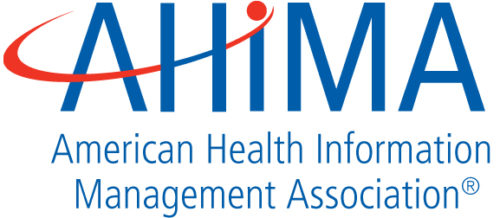
The AHIMA offers the Certified Health Data Analyst (CHDA®) designation to validate and recognize individuals with expertise in health data analysis. To be eligible to sit for the CHDA exam for certification, candidates should meet one or more of the following criteria:
- Healthcare information management credential (RHIT®) and minimum of three (3) years of healthcare data experience; OR
- Baccalaureate degree and a minimum of three (3) years of healthcare data experience; OR
- Healthcare information management credential (RHIA®); OR
- Master’s in Health Information Management (HIM) or Health Informatics from an accredited school; OR
- Master’s or higher degree and one (1) year of healthcare data experience
The exam is based on a set of competencies and candidates have three hours and thirty minutes to complete the multiple choice exam.
8. Certified Professional in Healthcare Information & Management Systems (CPHIMS)
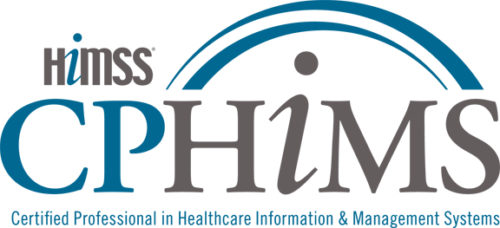
The Certified Professional in Healthcare Information and Management Systems (CPHIMS) credential is offered through the Healthcare Information and Management Systems Society (HIMSS). This credential validates that the candidate meets an international set of professional knowledge and competencies in healthcare information and management systems. To be eligible to take the CPHIMS exam, you must either:
- Hold a baccalaureate degree from an accredited college or university and
- Have five years of information and management systems experience, with three of those years in a healthcare setting
OR
- Hold a graduate degree or higher from an accredited college or university and
- Have three years of information and management systems experience, with two of those years in a healthcare setting
Individuals awarded with CPHIMS certification demonstrate a commitment to their professional development and increase their credibility with their employer.
7. CAHIMS (Certified Associate in Healthcare Information and Management Systems)
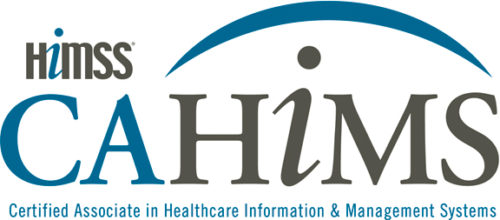
The CAHIMS certification is another great healthcare IT certification offered by the HIMSS. By earning certification as a Certified Associate in Healthcare Information and Management Systems, professionals demonstrate their professional knowledge and skills in healthcare information and management systems employers. The CAHIMS can help establish a foundation for professional development as you advance your career path and gain more experience and education in the field. To be eligible to sit for the CAHIMS exam, candidates must have a high school diploma or equivalent. The test is comprised of 115 multiple choice questions. Candidates have two hours to complete the exam.
6. Registered Health Information Technician (RHIT)
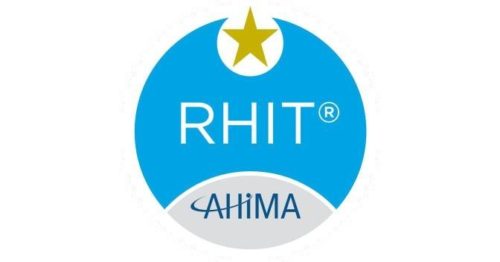
The Registered Health Information Technician (RHIT®) offered by the AHIMA, demonstrates that a health information technician is able to ensure the quality of medical records, uses computer applications to improve patient care or control cost, and may specialize in coding diagnoses and procedures in patient records for research or reimbursement. When combined with a bachelor’s degree, the RHIT credential can be used as a launchpad for career advancement to management roles. To be eligible to sit for the RHIT exam, candidates need to meet one of the following requirements:
- Successfully complete the academic requirements, at an associate’s degree level, of a Health Information Management (HIM) program accredited by the Commission on Accreditation for Health Informatics and Information Management Education (CAHIIM); or
- Graduate from an HIM program approved by a foreign association with which AHIMA has a reciprocity agreement
Featured Programs
5. Registered Health Information Administrator (RHIA®)

The RHIA is a top healthcare IT certificate offered through the AHIMA. The Registered Health Information Administrator maintains a critical link among healthcare providers, patients, and payers. The RHIA is an expert at maintaining patient health information, gathering and analyzing data. The RHIA is proficient in medical terminologies and in the use of classification systems. They interact with all levels of a healthcare organization that work with patient data in their decision making and daily operations. The RHIA also has significant knowledge in requirements and standards related to privacy and healthcare delivery. To be eligible to sit for the RHIA certification exam, candidates need to meet one of the following requirements:
- Successfully complete the academic requirements, at the baccalaureate level, of a Health Information Management (HIM) program accredited by the Commission on Accreditation for Health Informatics and Information Management Education (CAHIIM).; OR
- Successfully complete the academic requirements, at the master’s level, of an HIM program accredited by the CAHIIM; OR
- Successfully complete the academic requirements of an HIM Certificate of the Degree4 (Post-Baccalaureate) program approved by the CAHIIM; OR
- Graduate from an HIM program approved by a foreign association with which AHIMA has a reciprocity agreement; OR
- An RHIT who meets the Proviso conditions approved by the 2017 Commission on Certification for Health Informatics and Information Management (CCHIIM)
4. Certified Outpatient Coder (COC®)
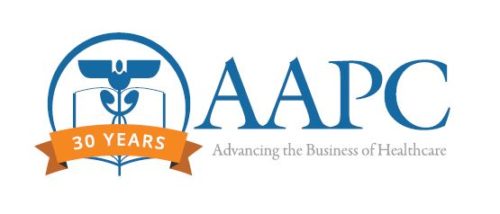
The Academy of Professional Coders awards professional certifications to medical coders. It raises the standards for physician-based medical coders through professional development opportunities and certifications. The Certified Outpatient Coder (COC) is a top healthcare IT certification in demand by outpatient facilities such as ambulatory surgical centers. Positions are also available in hospital outpatient billing and coding departments. To be eligible to sit for the COC exam, candidates should:
- have an associate’s degree (recommended, but not required) AND
- have at least two years of medical coding experience-unless they have an apprentice designation
3. Certified Professional Coder (CPC®)
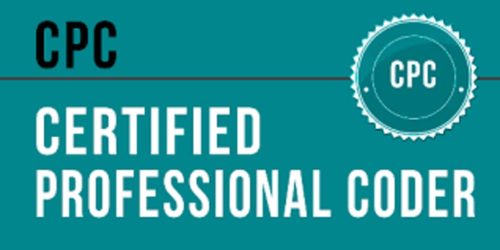
The Certified Professional Coder (CPC) is the most recognized medical coding certification in the healthcare industry according to the AAPC. It’s considered the gold standard in coding for both physician and non-physician healthcare services. There are over 105,000 CPC professionals. CPC’s have mastered:
- all code sets including CPT, ICD-10-CM, and HCPCS Level II
- evaluation and management principles
- surgical coding
- and have demonstrated their ability to adhere to all coding and documentation guidelines
The AAPC recommends that the CPC candidate has an associate degree (not required) and at least two years of medical coding experience. Candidates with less than two years of experience may be awarded an apprentice designation.
2. Healthcare Technology Specialist Certificate
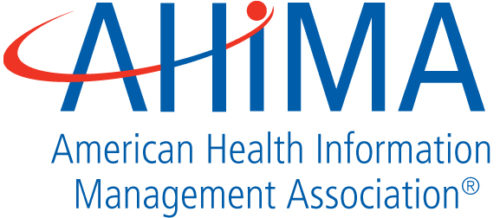
Website
The AHIMA offers another top healthcare IT certification for professionals with specialized knowledge and skills in areas like:
- regulatory and compliance
- quality and risk management
- technology
- leadership
- workflow and data management
- common employability skills
- technical role specialty content
This entry level certification is available to individuals in healthcare IT in healthcare organizations. To be eligible for certification, candidates should be:
- Individuals who have completed a training program using AHIMA’s curriculum competencies for Healthcare Technology Specialist certificate, OR
- Individuals trained through short-duration (typically six months) non-degree training programs including content relevant to entry level user support healthcare technology positions, OR
- Members of the workforce with 6 months or more of relevant Health IT experience
1. Epic Certification
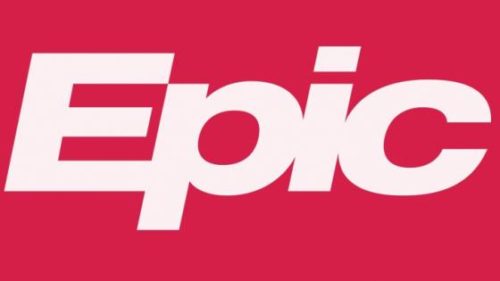
Website
Epic is a electronic record keeping software company founded in 1979. The software is used in a variety of healthcare settings including:
- community hospitals
- skilled nursing
- academic medical centers
- patient homes
- rehab centers
More than 250 million patients have their electronic records in Epic. Epic certification is highly valued in the healthcare IT realm and is only awarded to individuals Epic deems proficient in a given module. There are many different modules available depending on the healthcare environment, including:
- Cupid-cardiology
- ASAP-emergency room,
- Radiant-radiology
Certifications are awarded through a sponsorship by a healthcare system that’s implementing or planning to implement Epic. Individuals are not eligible for certification on their own. Candidates complete an in-depth training and go through a mock implementation to be eligible to sit for a proficiency test in an Epic module. Once you have earned certification, you can assist other hospitals with their implementations. There are plenty of positions available for individuals with Epic certification including:
- implementation specialists
- systems administrators
- software testers
- technical trainers
The more modules you are certified in, the more valuable you are within the healthcare industry.
Related Resources:
- Top Growing Healthcare Jobs
- 20 Highest Paid Non-Physician Jobs in Healthcare
- 25 Great Scholarships for Healthcare Management Students
- 25 Most Affordable Online Bachelor’s in Health Management
- Top 15 Online Healthcare Quality and Patient Safety Master’s Programs
- 100 Great Websites for Health Care Management Students